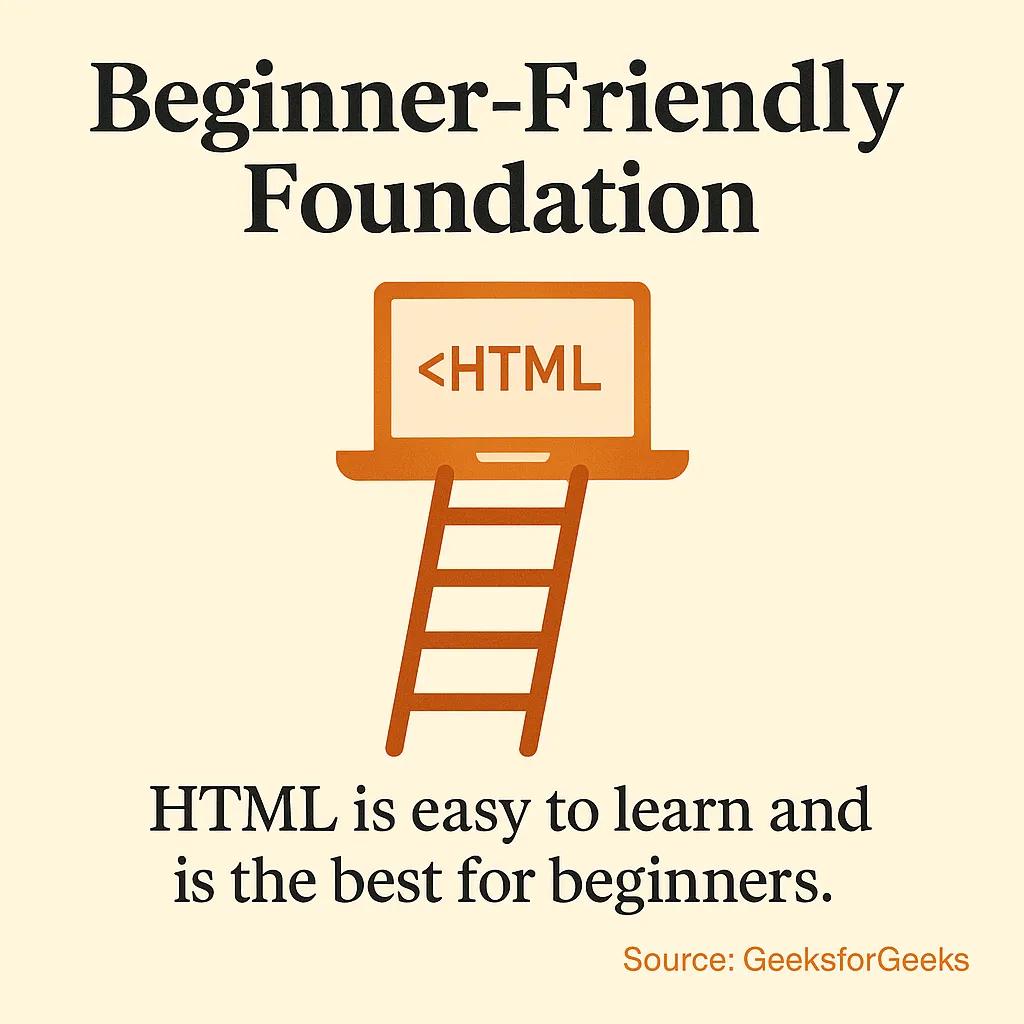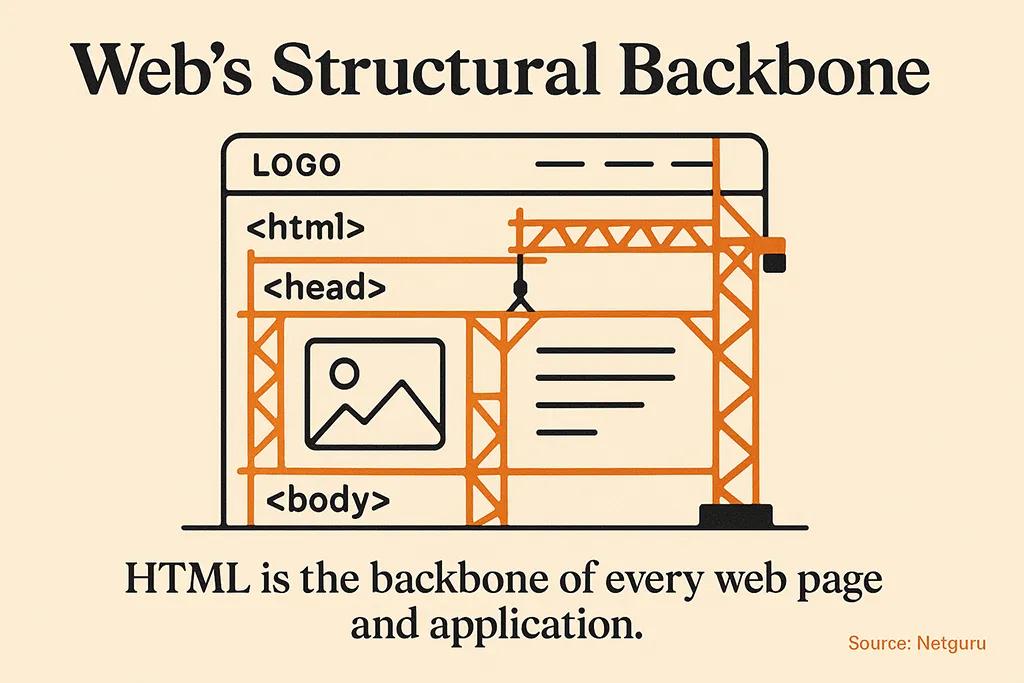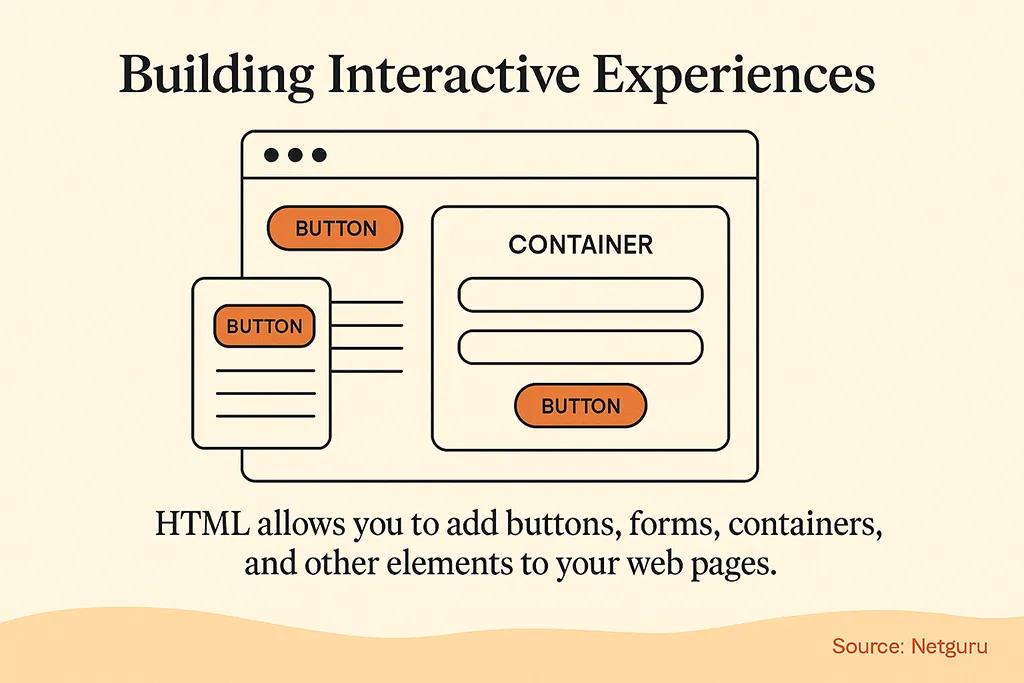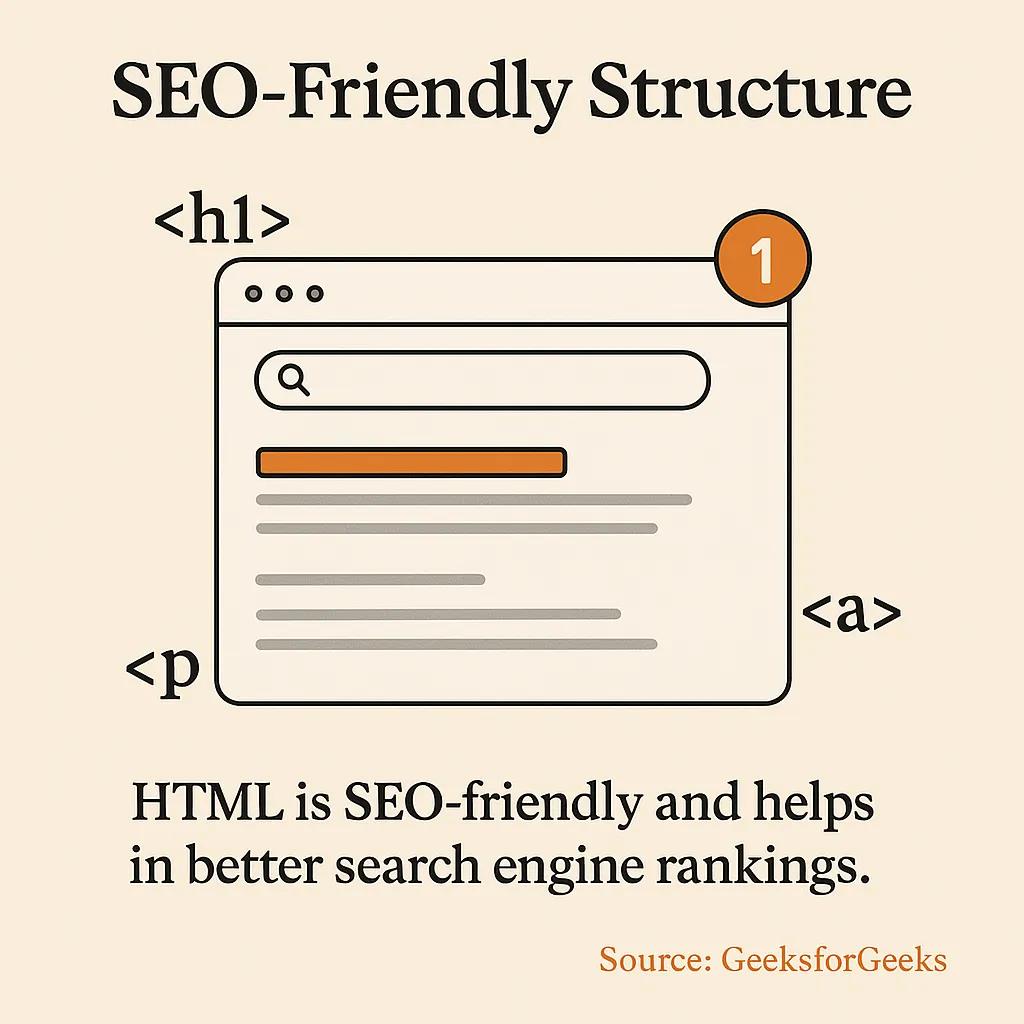Discover Why It's Useful to Learn HTML Now

Hey there! Are you staring at your computer screen wondering if learning HTML is worth your time? We get it. You're probably thinking "Another tech skill to master when I've got a business to run?" But here's the thing - HTML isn't just another coding language gathering digital dust. It's your ticket to understanding how websites actually work, and trust us, that knowledge pays dividends in today's digital world.
Whether you're a real estate professional wanting more control over your online presence or someone curious about web development, HTML offers something pretty special. It's the foundation that every single website stands on - yes, even those fancy ones with all the bells and whistles. And the best part? HTML is easy to learn and is the best for beginners (Source: GeeksforGeeks).
In this guide, we're going to show you exactly why picking up HTML skills right now makes perfect sense. We'll cover how it boosts your career prospects, why it's still super relevant in 2024, and what doors it opens for your digital journey. Plus, we'll keep things practical because learning should be fun, not a slog through boring technical jargon.
HTML is Your Gateway to Web Development Success
Think of HTML as the skeleton of every website you've ever visited. HTML is the backbone of every web page and application (Source: Netguru). When you understand this foundation, you're not just learning a skill - you're gaining insight into how the entire web works.
Here's what makes HTML brilliant for beginners: it's forgiving, logical, and you see results immediately. Write a few lines of code, save the file, open it in your browser, and boom - you've created a webpage! That instant feedback keeps the learning momentum going, which is exactly what you need when tackling something new.
But HTML does more than just create basic web pages. HTML allows you to add buttons, forms, containers, and other elements to your web pages (Source: Netguru). This means you can build functional, interactive websites that actually do stuff - collect email addresses, display images, organize content, and create the user experiences that make websites worth visiting.
Forms
- What It Does: Collect user information
- Real-World Example: Contact forms, property inquiries
Buttons
- What It Does: Trigger actions
- Real-World Example: Download brochures, schedule viewings
Containers
- What It Does: Organize content
- Real-World Example: Property listings, image galleries
Links
- What It Does: Connect pages
- Real-World Example: Navigate between property pages
Media
- What It Does: Display content
- Real-World Example: Property photos, virtual tour embeds

Why HTML Knowledge Translates to Other Skills
Here's where things get really interesting. Learning HTML isn't a dead-end skill - it's the first step on a journey that can take you anywhere in web development. HTML, CSS, and JavaScript are the core technologies for building web interfaces, and frameworks like React and Angular rely on them (Source: StartDesigns).
Think of it this way: would you try to build a house without understanding how foundations work? That's essentially what happens when people jump into advanced frameworks without HTML basics. They might get something working, but they don't truly understand what's happening under the hood. For a deeper understanding of this progression, check out our guide on how to learn to code effectively.
HTML Stays Relevant in a Changing Digital World
You might be wondering, "With all these fancy website builders and no-code tools, is HTML still important?" Short answer: absolutely. HTML... will remain a top frontend technology in 2025 (Source: Netguru). Even the most advanced tools rely on HTML to actually display content in web browsers.
Here's the reality check: every website builder, every framework, every modern web technology eventually outputs HTML. When you understand HTML, you understand what's actually happening when someone clicks "publish" on their fancy website builder. This knowledge makes you more effective at troubleshooting problems, customizing designs, and optimizing performance.
For real estate professionals, this is particularly valuable. You're not just limited to template options anymore. You can tweak and customize your online presence to truly reflect your brand. If you're curious about HTML's continued importance in modern development, our article on whether HTML is still relevant dives deeper into this topic.
Website Builders
- HTML Relationship: Generate HTML output
- Why HTML Knowledge Helps: Customize beyond templates
Email Marketing
- HTML Relationship: Email templates use HTML
- Why HTML Knowledge Helps: Create better-looking emails
Social Media
- HTML Relationship: Some platforms allow HTML
- Why HTML Knowledge Helps: Enhanced formatting options
Analytics Tools
- HTML Relationship: Track via HTML tags
- Why HTML Knowledge Helps: Better data collection setup
SEO Benefits You Can't Ignore
Here's something that'll make your marketing heart sing: HTML is SEO-friendly and helps in better search engine rankings (Source: GeeksforGeeks). When you understand HTML, you can optimize your content for search engines in ways that many people miss.
Search engines love clean, semantic HTML because it helps them understand what your content is actually about. You can add proper headings, meta descriptions, alt tags for images, and structure your content in ways that both users and search engines appreciate. This isn't just theory - it's practical knowledge that can directly impact your online visibility.

Career and Business Advantages of HTML Skills
Let's talk about the practical benefits for your career and business. Learning HTML... makes you more versatile in the digital economy (Source: Netguru). This versatility opens doors you might not have considered.
For real estate professionals, HTML knowledge means you're not completely dependent on developers for basic website changes. Need to update a property listing? Add a new team member to your about page? Create a landing page for a specific development? With HTML skills, you can handle these tasks yourself or communicate more effectively with your web team.
The applications extend beyond just websites too. HTML is used for static websites, landing pages, documentation, and content-heavy sites (Source: Netguru). Each of these represents an opportunity to create better digital experiences for your clients and prospects.
- Create custom email templates that stand out in crowded inboxes
- Build landing pages that convert visitors into leads
- Customize your website without waiting for developer availability
- Understand technical conversations with web professionals
- Troubleshoot basic website issues independently
Building Toward More Advanced Skills
HTML serves as your foundation for learning more advanced web technologies. Once you're comfortable with HTML, CSS becomes the natural next step for styling and visual design. If you're interested in expanding your skillset, our guide on the best CSS frameworks for beginners can help you plan your learning path.
From there, JavaScript opens up interactivity and dynamic functionality. Understanding how JavaScript works becomes much easier when you already grasp HTML fundamentals. This progression isn't just academic - it's practical skill-building that can transform how you approach digital projects.

Accessibility and Professional Standards
Here's something that makes HTML knowledge particularly valuable: HTML is integral to accessibility and web standards (Source: web.dev). This means your websites can be used by people with disabilities, work across different browsers, and meet professional web standards.
In real estate, accessibility isn't just nice-to-have - it's about reaching every potential client. When you understand HTML structure, you can create websites that work with screen readers, keyboard navigation, and other assistive technologies. This attention to detail sets you apart as a professional who cares about all users.
Plus, accessible websites tend to perform better in search engines and load faster on all devices. It's a win-win situation where doing the right thing also benefits your business outcomes.
Semantic headings
- Accessibility Benefit: Screen reader navigation
- Business Impact: Better SEO structure
Alt text on images
- Accessibility Benefit: Description for visually impaired
- Business Impact: Image search optimization
Form labels
- Accessibility Benefit: Clear input identification
- Business Impact: Higher form completion rates
Logical tab order
- Accessibility Benefit: Keyboard navigation
- Business Impact: Better user experience

Getting Started Without Overwhelming Yourself
The beauty of HTML is that you don't need to master everything at once. Start with basic elements - headings, paragraphs, links, and images. Build simple pages and gradually add complexity as you become more comfortable. If you're wondering about the learning curve, our article addressing whether HTML is hard to learn might ease some concerns.
One thing that often surprises people is discovering that HTML is not considered a programming language in the traditional sense. It's a markup language, which means it's more like giving instructions for how to display content rather than creating complex logic. This makes it much more approachable for beginners.
Practice with real projects that matter to you. If you're in real estate, try building a simple property showcase page. If you have a business, create a basic landing page. The key is making your learning relevant to your actual needs and interests.
Tools and Resources to Support Your Journey
You don't need expensive software to start learning HTML. Any text editor will work, though tools like Visual Studio Code make the process more enjoyable with syntax highlighting and helpful features.
Online resources abound for HTML learning. Platforms like Codecademy, freeCodeCamp, and MDN Web Docs offer structured lessons and reference materials that make learning systematic and fun.
The Long-Term Value of HTML Knowledge
Learning HTML isn't just about immediate benefits - it's an investment in your digital literacy. As technology continues to shape how we do business, understanding the fundamentals becomes increasingly valuable. You'll be better equipped to evaluate web technologies, communicate with developers, and make informed decisions about your digital strategy.
For real estate professionals specifically, this knowledge becomes a competitive advantage. You can create more effective online presentations, better understand how your digital tools work, and potentially save significant costs on basic web development tasks.
The skills you learn today will remain useful for years to come. HTML has been around for decades and continues to be the foundation of web development. This stability means your investment in learning pays dividends over time rather than becoming obsolete.
Ready to Start Your HTML Journey? The best time to plant a tree was 20 years ago. The second-best time is now. HTML skills will serve you well whether you're building your first website or enhancing your digital expertise.
HTML learning opens doors to understanding how the digital world actually works. It gives you control over your online presence and provides a foundation for more advanced skills. Whether you're looking to enhance your real estate marketing, build better client experiences, or simply understand technology better, HTML offers practical, immediately applicable knowledge.
The journey starts with a single tag, and before you know it, you'll be creating web experiences that truly serve your business goals. So why not give it a try? Your future digital-savvy self will thank you for taking this step today.




